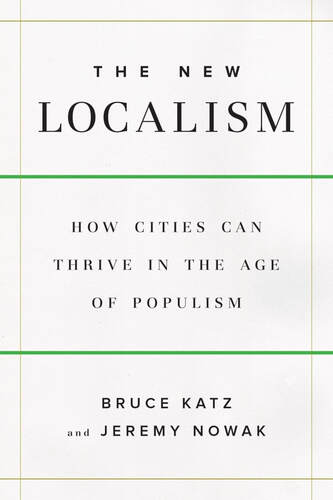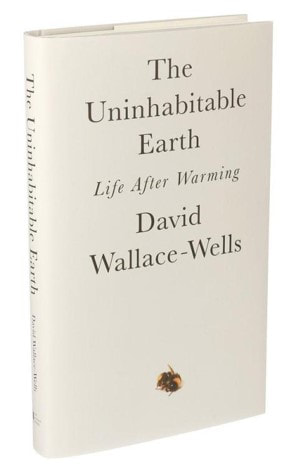Scott AndersonProverbs 8:1-31 † Psalm 8 † Romans 5:1-5 † John 16:12-15 I suspect our children understand far better than we do the implications of climate change on the future. It is, after all, their future, although we are the ones who have given it to them, such as it is. So let me offer you one simple illustration that caught my attention recently. Most of us are likely aware that populism is not simply an American phenomenon. We have a president who has made a decisively inward turn, advocating for walls and putting things in terms of insiders and outsiders both within and without our country. But we are not the only country where these explosive political dynamics have found new life. There is something of an international battle going on for the soul of our lives whether its arguments over Brexit in the UK, or Yellow Vest protests in France. These are all, at their roots, populist movements, that is, they are in revolt against elites, both in an economic as well as a political sense.  Bruce Katz and Jeremy Nowak connect the dots for us in their 2017 book The New Localism, which Maggie brought to my attention from her work at Seattle U. Populism, as it appears from the right, is “nostalgic in focus, nationalistic in tone, and nativist in orientation. The rhetoric of this populist politics seeks to create walls, literal and figurative, that inhibit the flow of people, goods, capital, and ideas across borders; the essence,” they say, “of the modern economy.”[I] Populism exists on the left as well. According to their analysis usually “devoid of national and ethnic chauvinism,” but still with a nostalgia for a world that no longer exists, seeking simplistic and protectionist solutions they argue no longer fit modern realities.[ii]  So here’s the example that caught my attention. David Wallace-Wells has written a devastating book called The Uninhabitable Earth. In it he offers stark comparisons that help us to get at the dramatic effects of climate change which are admittedly so totalizing and sublime that we really can’t get our heads around it, so that, in effect, we look away, fatally complacent, and willfully deluded. Wallace-Wells doesn’t. In fact, he has been collecting stories of climate change, stories that play out like fables, he says, in hopes of getting our attention: “a group of Arctic scientists trapped when melting ice isolated their research center, on an island populated also by a group of polar bears; a Russian boy killed by anthrax released from a thawing reindeer carcass, which had been trapped in permafrost for many decades.” Here’s the one that caught me: Beginning in 2011, about one million Syrian refugees were unleashed on Europe by a civil war inflamed by climate change and drought—and in a very real sense, much of the “populist moment” the entire West is passing through now is the result of panic produced by the shock of those migrants. Well, that caught my attention, but he was just beginning: The likely flooding of Bangladesh threatens to create ten times as many, or more, received by a world that will be even further destabilized by climate chaos—and, one suspects, less receptive the browner those in need. And then there will be the refugees from sub-Saharan Africa, Latin America, and the rest of South Asia—140 million by 2050, the World Bank estimates, meaning more than a hundred times Europe’s Syrian “crisis.”[iii] I know I’ve been guilty of imagining a silver lining in the threat of climate change—we’re seeing more sunny days around here, after all. And even if we will experience more deaths from heat waves in our future,[iv] still Seattle could use a few more degrees of warmth, couldn’t it, to take the edge off the winter gray? Yet, this completely misses the point and contests any thought that our privilege and wealth will help us to escape the challenges that are coming. If the tragedy of one million refugees in Europe has been a key to the populist revolt that has affected nearly every aspect of our every-day lives these past few years, what do we imagine 140 million refugees throughout the world, looking for a new home because theirs is uninhabitable, will do to our global political stability? And Wallace-Wells is using conservative estimates. UN projections place that number at 200 million: Two hundred million was the entire world population at the peak of the Roman Empire, if you can imagine every single person alive and living anywhere on the planet at that time dispossessed of their home and turned outward to wander through hostile territories in search of a new one.[v] We have to understand that we are in this together. And this is where we begin to find some good news this morning. Because this faith of ours has always understood this, and always seen the promise in this way of being. This is a core message of this festival Sunday we call Trinity, and, I suspect, the link that it makes to wisdom, the wisdom that Proverbs claims is embedded in creation and a reality that will forever outlast any mess that we make.
We took the liberty of reading the first two readings today from Eugene Peterson’s The Message translation because the colorful, contemporary language brings this sense alive. “Listen up you fools!” Wisdom calls. Shape up, you blockheads. Sticking your heads in the sand will do nothing. Lady wisdom lives next to sanity. And knowledge and discretion are close neighbors. Good counsel, common sense, insight, virtue, righteousness, and justice, faithfulness, compassion, and steadfast love—these are the citizens of a life-giving community. Nostalgia is no solution. Giving yourself to truth will cause some distress. But it will also be your way out. What we face, is serious. The future we have given to our children and their children will have no shortage of challenges. There is no doubt about this. And our continued denial will only sacrifice them further. But this does not have to be the end. We are capable of much more, even if it doesn’t get the press. That’s the gist of The New Localism. “Discord plays better than collaboration; defining problems will always get more coverage than delivering solutions.”[vi] But true power belongs to the problem solvers, to those who help to articulate and demonstrate ways in which we can improve our lot, and create promise for the future, who live in the neighborhood of wisdom. The future belongs to those who live in hope, and act together, in possibility. And the compelling claim of The New Localism is that these problems are increasingly being solved at the local level, in cities, and in metropolitan areas across the globe. This, it seems, may be one place in which wisdom is calling out these days. And their findings support the importance of organizing communities such as our churches where we understand neighborliness as present at creation, as a root value, as a core of who we are and what we believe, in the shaping of these solutions. That you are talking about what it means to be a good neighbor is to be a part of that promise. That you are looking both to providing immediate relief, to our ARISE brothers who are staying in this building this month as they transition to a more stable future, for example, while also asking questions about long-term solutions, and new forms of collaboration, while listening to those whose lives are most affected—that is to be a part of the promise, that is to reside in the neighborhood of wisdom. And that you recognize that the wisdom of this dance of one God in three, of God as relationship, as covenant, as collaboration, as melody and harmony, as a truth that is not controlled or contained by any of us, but present in the Spirit of Life from the beginning of creation, is to witness to the possibility of resurrection and new-life. Elizabeth Johnson has this great line about Wisdom: “her constant effort is to lure human beings into life.”[vii] You hear her calling, don’t you? Let’s keep listening, and together find the courage to act together for the sake of all creation. Amen. Notes: [i] Katz, Bruce. The New Localism (p. 5). Brookings Institution Press. Kindle Edition. [ii] Ibid. [iii] Wallace-Wells, David. The Uninhabitable Earth (p. 7). Crown/Archetype. Kindle Edition. [iv] Cf. Evan Bush, “Seattle unprepared for deadly heat waves made worse by global warming, researchers say” in the Seattle Times, June 14, 2019. Retrieved June 14, 2019 from https://www.seattletimes.com/seattle-news/environment/heat-waves-could-kill-hundreds-more-in-seattle-as-globe-warms-researchers-say/ [v] Wallace-Wells, David. The Uninhabitable Earth (p. 7). Crown/Archetype. Kindle Edition. [vi] Katz, Bruce. The New Localism (p. viii). Brookings Institution Press. Kindle Edition. [vii] Johnson, Elizabeth. She Who Is. Crossroad, 1992, p. 88.
0 Comments
Leave a Reply. |
St. Andrew SermonsCategories
All
|

 RSS Feed
RSS Feed